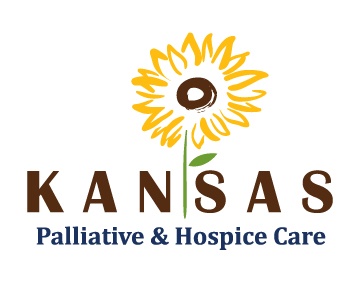VIGIL & BEREAVEMENT
FINAL DAYSAt Kansas Palliative & Hospice Care our mission is to serve others. Patients near the end of their life, family members trying their best to support their loved ones, caregivers and professionals striving to provide the best care possible need assistance and we want to provide that assistance!
The final act of your loved one’s independence is their death – and there is no way to precisely predict how or when they will die. As death nears, these things are important: safety, privacy and calm. Continue to be open and genuine so that your loved one feels secure. Your hospice team is knowledgeable, skilled and confident and they will respond rapidly when you call, so call when you need – and lean on them during this time. Now is the time to be fully present; remember that our hospice care team is there to support you every step of the way.
What are the signs that a person is near death?
Sometimes, the patient has a surge of energy or a “rally”. When this happens, you may feel renewed hope that your loved one’s health is improving. This may be an opportunity to listen to or talk with them. Often, the “rally” doesn’t last very long. You may find that they:
- Speak with clear conversation
- Respond to questions and attentive
- Can sit up or enjoy their favorite meal
Other signs include:
- Patient may appear to be in a coma or a non-responsive state.
- Patient may no longer take in food or fluid.
- Patient may reach out, pick at clothing or have busy hands.
- The patient’s breathing patterns may come and go:
- Blowing of the lips
- Stopping and resuming of rhythmic breathing
- Congestion/rattling sound in lungs and upper throat
- Patient’s vital signs (pulse, blood pressure, respiration) may increase and decrease.
- Patient may show increased perspiration and clamminess.
What to report to our hospice/palliative care team?
- Changes in the patient such as restlessness or anxiety, changes in breathing, pain or discomfort
- Need for spiritual support or guidance for the person or family
- Concerns that may need help from the social worker, chaplain or other members of our hospice team
- Religious, cultural or ethnic traditions important to your family
- Information about the funeral home and other arrangements that are wishes of the person, such as organ donation
It is important to talk to our hospice/palliative care team about any concerns you have. During this difficult and stressful time it is important that caregivers take care of themselves while caring for the person who is dying. The team will be there to provide support and comfort.
There are major differences in the way hospice care is delivered.
While Medicare mandates minimum levels of care and minimum required services there are many benefits to the patient that are left to the discretion of the provider. Make sure you understand the Kansas Palliative & Hospice Care services differences.

